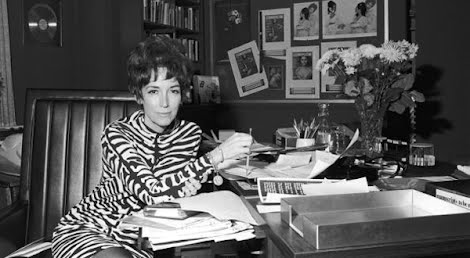The art of paring down decisions

Who else remembers Doug Funny's very pared-down closet?
The WiFi was abysmal during my latest cross-country flight, so it's good that in the airport I picked up the October issue of Vanity Fair. This issue was, by the way, really heavily focused on Silicon Valley, with lots of pieces on startup founders, tech executives, and a full profile of Y Combinator, which was interesting (and I have to say pretty validating, even though I like to rib the old media types at VF from time to time.)
A particularly interesting article was Michael Lewis' in-depth profile of President Obama. Lewis asked one question several times during the six month period that he interviewed the President, and I think it's one that could work well for other high-profile interview subjects:
"Assume that in 30 minutes you will stop being president. I will take your place. Prepare me. Teach me how to be president."
The first couple times this question came up, Lewis says Obama's answers were a bit "dull and expected." But during one sit-down discussion aboard Air Force One, the President opened up with specific advice that I think could be useful for many of us regardless of political affiliation. I'm not sure that blue and gray suits are my thing, but maybe it's something I should look into:
You also need to remove from your life the day-to day problems that absorb most people for meaningful parts of their day. "You'll see I wear only gray or blue suits," he said. "I'm trying to pare down decisions. I don't want to make decisions about what I'm eating or wearing. Because I have too many other decisions to make." He mentioned research that shows the simple act of making decisions degrades one's ability to make further decisions. It's why shopping is so exhausting.
"You need to focus your decision-making energy. you need to routinize yourself. You can't be going through the day distracted by trivia."
The San Francisco scene
"The San Francisco scene remained a layered, complex mulch from which sprouted some pretty advanced ideas: work should be spiritually sustaining; people should care for one another; riches should be shared; fun should be had.
There was a feeling in the air that humans had the potential to be more than workaday drudges. We had the resources then to make life amazing. In fact, resources begat resources, love begat love, and -- oh, yeah -- work begat work.
With a little work (or a lot, as it turned out), we could do anything, even save the world."
With a little work (or a lot, as it turned out), we could do anything, even save the world."
-- from a very interesting and inspiring letter to the editor in the September issue of Vanity Fair penned by a woman named Jeanne Wilkinson, in response to a long piece published by VF in July about the storied milieu in San Francisco during the famed 1967 "Summer of Love."
Things have certainly changed since then -- and a lot of that idealism was quite misguided -- but it seems a core part of the energy Wilkinson describes remains here in San Francisco. It's why I think things feel so fundamentally different here than in, say, New York (although they are finally starting to appropriate some of the old San Francisco attitude out east, I'm not sure they'll ever quite get it.) I love NYC to pieces but it's just not the same.
And despite all of the criticism about California and the Bay Area being "unfriendly to business," I think it's this unique core belief system that has made this a hub of two things that seem to be at odds: Forward-thinking business innovation and personal livability.
I say, long live the San Francisco scene.
I say, long live the San Francisco scene.
Starting -- and hanging in

"How old are you? Twenty-one? Thirty? It doesn't matter -- you need only to have some kind of job somewhere. Then, from that most unillustrious beginning, however young or old you are, you move ever so gradually up, and, if you stay with it, the gradual moving up takes you to the top.
It's true. It doesn't matter where you start, or with what company; what matters is starting -- and hanging in.
May I tell you about my early jobs? They were pitiful, and I was pitiful in them."
I wish I could just excerpt the entirety of the late Helen Gurley Brown's book "Having It All" on my blog -- it's a favorite I have referenced a couple of times in the past -- but I would just entreaty you all to buy it (it's out of print, but I blessedly stumbled upon it at a vintage store a few years back and it seems to be in stock on Amazon still.) She is wonderful, funny, ridiculous, brilliant, and so helpful and woman-centric and instructive and loving -- not to mention how she's instilled into me an respect for the power of italics.
I have to assume that anyone who is deriding Helen Gurley Brown's legacy when it comes to women and feminism (as have some people whose thoughts I otherwise often respect) has not read enough of her work to really understand what she was about. Today's Cosmopolitan has nothing to do with what HGB pioneered.
Anyway. That mouseburger will be sorely missed, and may she rest in peace.
When you learn things

Recently Larry King sat in for an "Ask Me Anything" session on Reddit, which in itself was a pretty cool event -- two notable brands, from very different generations and departments in "media," learning and working together.
It's fun to read through. King is super concise and truthful and direct -- basically, just as you may expect he'd be, and then even more so. You should really scroll through the whole discussion.
But this part especially caught my eye (in particular, the bit I've enlarged and bolded, as it's something I continually need to remind myself):
Q: How hard was/is it for you to be non-biased as a broadcaster?
A: Not hard at all. I was raised on professionalism. The people I admire the most in the business were the people who's opinions I did not know. Who had the ability to deliver material in an unbiased manner. I always left my ego at the door.
My number one motto [was] and still is "I never learned anything when I was talking."